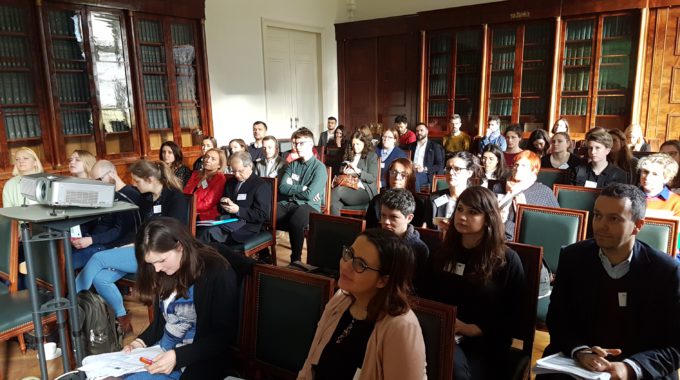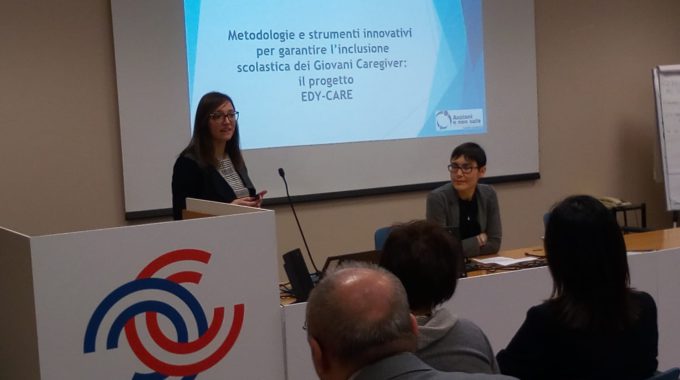EdyCare Handbook: Resources for Teachers
Do you know a young person who is…
- often late or missing days or weeks off school for no reason?
- often tired, anxious or withdrawn?
- having problems socially or with making friends?
- conversely, do they get on well with adults and present themselves as mature for their age?
- anxious or concerned about an ill or disabled relative?
- whose parents are not engaging with the school or not attending school events?
A proportion of young people across Europe carry out a significant role in caring for their family member who is ill, disabled or misuses drugs or alcohol. These young people are defined in the literature as young carers (YCs), that is
“children and young persons under 18 who provide or intend to provide care, assistance or support to another family member. They carry out significant or substantial caring tasks, often on a regular basis, and assume a level of responsibility that would usually be associated with an adult.”
(Becker, 2000)
Young carers who provide care to another family member often experience high levels of worry, depression, anxiety, stress and other mental ill-health problems. They may also feel a sense of guilt when leaving the person for whom they are caring while they attend school, and even fear losing their relative or of inheriting the same illness together with a sense of helplessness or having little control over their situation. They can also be distracted in school due to worrying about the person they care for.
In spite of this, young carers are often reluctant to inform teachers and other staff (nurses, director, guidance counsellors) about their caring responsibilities and so it is often challenging for professionals to be aware of young carers’ needs, preferences and situation and the effects that caring roles have on their everyday lives and future life situation. To bridge this gap, Eurocarers participated in an Erasmus+ (EU-funded) project, EdyCare, which sought to empower teachers and other school staff to identify and support adolescent young carers (16-19 years old) to maximize their learning opportunities and remain socially included.
One of the outputs of the project was a handbook to guide staff in schools throughout Europe (and internationally) in supporting and empowering empower their students with caring responsibilities. The handbook provides information to school professionals on the prevalence of young carers in Europe, highlighting the lack of information available in many EU countries and how to identify a young carer. It outlines good practice examples of how to support young carers and create carer-friendly schools, highlighting the importance of being flexible with regard to the completion of homework and dates for sitting exams.
The importance of reinforcing a multi-stakeholder approach to supporting young carers is also stressed. In particular, the handbook emphasised how strategies towards young carers friendly schools need to be complemented with strategies to alleviate young carers’ burden, to improve their mental health and strengthen their resilience, such as giving carers a break from caregiving activities to have fun, providing them with access to psychoeducation support services at school or in the community and establishing peer support groups to empower young carers and show them that they are not alone.
The handbook also provides real-life stories to illustrate the impact of caring on the emotional well-being of the individual.
“I’ve such a bad conscience when I feel that now I leave my mother when I know she’s drunk, and then you should sit there in the school, listen to the teacher and try to do your best.”
(David, 17 years old, Sweden)
“I’m always tired, I struggle to complete my commitments and stay focused, or rather awake, during lessons. Almost every night my brother wakes me up to read a book about the trams, his great passion. Every night the same book. He wants to do this only with me and he gets very angry when our parents try to take my place. So we spend at least one hour looking at different tram models, then he fall asleep, but this doesn’t happen to me…I’m not able to fall asleep again and I often see the sunrise.”
(Giovanni, 18 years old, Italy)
“I help my grandfather take a shower and sometimes I have to hold him with my arms. I have to support his body.”
(Ricardo, 16 years old, Portugal)





